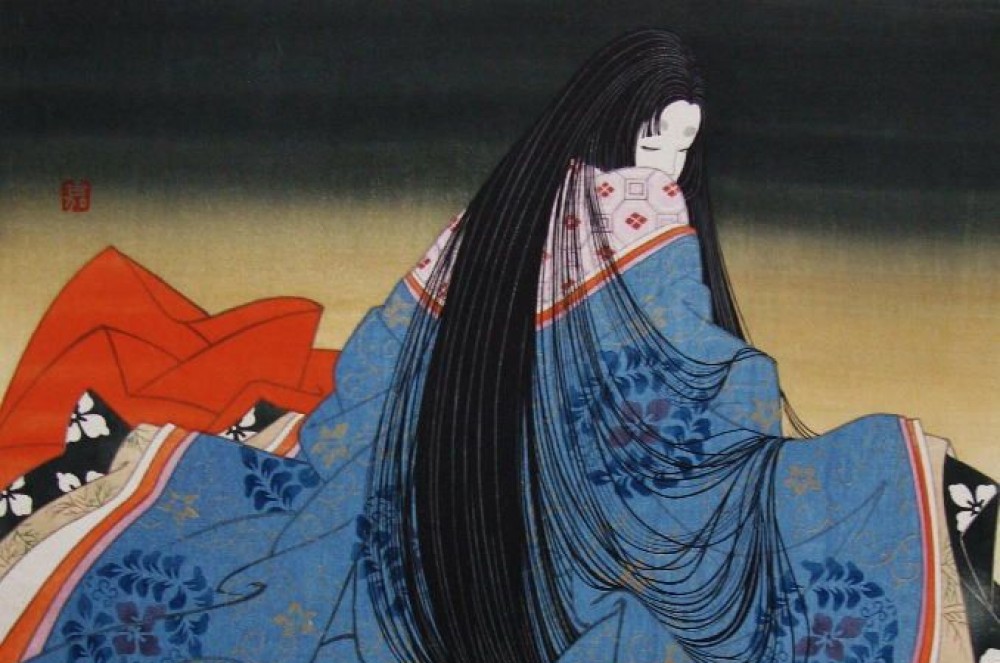Sarah Allan
Sarah Allan is Burlington Northern Foundation Professor of Asian Studies in honor of Richard M. Bressler at Dartmouth College, Chair of the Society for the Study of Early China and Editor of Early China. Her work is multi-disciplinary, but much of it focuses on the history of thought and the formation of the Chinese philosophical tradition in the first millennium BCE. Her first book, The Heir and the Sage: Dynastic Legend in Early China (1981) used a structural methodology to demonstrate that the accounts of dynastic foundation found in the early Chinese texts revealed an underlying tension between ideas of rule by merit and hereditary rule and were systematically manipulated by writers (or schools of writers) express their philosophic positions. The Shape of the Turtle: Myth, Art and Cosmos in Early China (1991) was a reconstruction of various aspects of the thought of the Shang Dynasty (c. 1600-1050 BCE), working on the hypothesis that the myth, art, and ritual of the Shang rulers should be understood as integrally related. The Way of Water and Sprouts of Virtue (1997) adapted the metaphor theory of Lakoff and Johnson to the philosophical terminology found in the early Chinese philosophical literature, arguing that water and plant life served as root metaphors for many of the core philosophical terms and concepts. The first group of three groups of bamboo-slip manuscripts with philosophic and historical text buried during the Warring States period (475-222 BCE) were published in 1998. Much of Allan’s research since then has been concerned with these manuscripts, their decipherment, and the light they shed on the context in which the transmitted canon was formed. These works include The Guodian Laozi: Proceedings of the International Conference, Dartmouth College, May 1998 (with Crispin Williams, 2000) and, most recently, Buried Ideas: Legends of Abdication and Ideal Government in Early Chinese Bamboo-slip Manuscripts (in press).
Alexander Beecroft
Alexander Beecroft teaches courses in Greek and Latin language and literature, ancient civilizations, literary theory (ancient and modern) and the theory and practice of world literature. His major areas of research interest are in the literatures of Ancient Greece and Rome, pre-Tang Chinese literature (i.e. before AD 600), as well as current debates about world literature. His work has been published in journals ranging from the Transactions of the American Philological Association to Early Medieval China to the New Left Review, and he has been invited to present his work in Europe and in China, as well as across North America. His first book, Authorship and Cultural Identity in Early Greece and China: Patterns of Literary Circulation was published by Cambridge University Press in 2010. He was the winner of a Morse Junior Faculty Fellowship in the Humanities in 2006-07, while teaching Comparative Literature at Yale University, and was the recipient of a Charles A. Ryskamp Research Fellowship in the Humanities from the American Council of Learned Societies for the 2011-12 academic year for work on his next book project, An Ecology of World Literature: From Antiquity to the Present Day (Verso, 2015). He is also the Secretary-Treasurer of the American Comparative Literature Association.
Carole Cavanaugh
Carole Cavanaugh is Kawashima Professor of Japanese Studies at Middlebury College. She explored the relations between films and pre-modern source texts in her monograph Sanshō Dayū (British Film Institute, 2000) and in a range of chapters and articles on Shinoda’s Double Suicide, Mizoguchi’s Life of Oharu, and Akutagawa’s stories adapted for the screen. She edited a volume of essays on a similar topic: Word and Image in Japanese Cinema (Cambridge, 2001). Her focus on another area of interest, narrative subjectivity, led to her essay “Text and Textile: Unweaving the Female Subject in Heian Writing” and inspires her current research on cognition in Heian fiction.
Michael Clarke
My specialist publications are rooted in two complementary areas, historical semantics and ancient and medieval heroic literature. Both are in my first book Flesh and Spirit in the Songs of Homer, where the main text is concerned with the world-picture of early Greek epic poetry and the footnotes try to trace the shifting meanings of words. Since then, my linguistic interests have focussed on semantic change, prototype theory, and lexical reconstruction. My literary work on heroic traditions has led me to a special interest in Middle Irish recreations of Greek mythology and pseudo-history, focussing on the unpublished late Middle Irish recension of Togail Troí, the Irish rendering of the Trojan War. A series of detailed studies in this area is in course of publication for 2014 and 2015. Increasingly, I am drawing this literary and linguistic work into conjunction with an overriding interest in manuscripts as artefacts and as objects of study in their own right. With colleagues in Galway and other international universities I am a member of a growing research network concerned with glossing, commentary and language contact as witnessed by early medieval manuscripts from Insular and continental Europe and from eastern and southern Asia.
Michael Emmerich
Michael Emmerich’s scholarly interests in Japanese literature range from the classical, court-centered prose and poetry of the Heian period to the popular printed fiction of the early modern age, and on from there to the prose fiction of modern and contemporary times. His engagement with the literary products of these diverse periods is informed by a sensitivity to the material and visual forms that writing takes, and by an academic commitment to translation studies with its potential for approaching literature in a manner relatively unconstrained by linguistic and temporal boundaries, both among and within nations. His book The Tale of Genji: Translation, Canonization, and World Literature (Columbia University Press, 2013) examines the role that translations of Genji monogatari (The Tale of Genji) into early-modern and modern Japanese, and into English and other languages, have played in creating images of the tale over the past two centuries—reinventing it as a classic of both national and world literature. He is currently working on a project that explores the concept of “translation” as it relates to Japan and to various forms of the Japanese language. Emmerich is the author of more than a dozen book-length translations of works by writers such as Kawabata Yasunari, Yoshimoto Banana, Takahashi Gen’ichirō, Akasaka Mari, Yamada Taichi, Matsuura Rieko, Kawakami Hiromi, Furukawa Hideo, and Inoue Yasushi.
Joseph Farrell
Joseph Farrell is Professor of Classical Studies at the University of Pennsylvania, where he has taught since 1984. His primary research focus is classical Latin literary culture, with an emphasis on the reception of earlier Greek and Latin literature in the poetry of the late Republican, Triumviral, and Augustan periods, as well as the reception of that poetry in later periods. He is also interested in (and skeptical of) the categorical distinction between “ancient” and “modern” that informs most histories of Western literature and culture.
Sean Gurd
Sean Gurd has published two monographs (Iphiganias at Aulis and Unfinished Project: Literary Revision as Social Performance in Ancient Rome), one collaborative volume (Philology and its Histories), and articles on Greek drama, ancient authorial practice in antiquity, and the history of textual criticism. His current work is on the cultures of sound in archaic and classical Greece. In a short book called Dissonance (forthcoming), he argues that Greek poetry and music between Homer and Euripides was grounded on an aesthetic of disruption, in which sound was culturally coded as disruptive — and then joyously invoked, celebrated, and made, with the result that Greek sound-art was a persistently and self-consciously dissonant practice, a kind of noise music avant la lettre. A second, as-yet-unnamed and still unfinished book juxtaposes moments of auditory theory in classical Greek philosophy with sonorous expressions of various 20th Century avant-gardes.
James Heffernan
James A. W. Heffernan, Professor of English Emeritus at Dartmouth College, has published extensively on the relations between literature and visual art as well as on literature and classical tradition. His books include The Re-Creation of Landscape: A Study of Wordsworth, Coleridge, Constable, and Turner (1985), Museum of Words: The Poetics of Ekphrasis from Homer to Ashbery (1993), Cultivating Picturacy: Visual Art and Verbal Interventions (2006), and—most recently–Hospitality and Treachery in Western Literature (Yale UP, 2014). He has also edited a collection of essays titled Representing the French Revolution: Literature, Historioraphy, Art (1992), and he is Founding Editor of Review 19 (www.nbol-19.org), an online book review that has so far assessed over 350 books on English and American literature of the nineteenth century.
Mack Horton
H. Mack Horton, Professor, teaches premodern Japanese language and literature. He received his M.A. in 1981 from Harvard University and his Ph.D. in 1989 from University of California, Berkeley. Professor Horton specializes in classical poetry and diary literature, focusing on issues of performativity, cultural context, and poetics. He is the author of Song in an Age of Discord: The Journal of Sôchô and Poetic Life in Late Medieval Japan (Stanford University Press, 2002), its companion volume The Journal of Sôchô (Stanford University Press, 2002), and Traversing the Frontier: The Man’yôshû Account of a Japanese Mission to Silla in 736-37 (Harvard University Asia Center, 2012). He is also the translator of ten books on Japanese literature, history, and architecture. Chair of the department from 2003-06, Professor Horton received Berkeley’s Distinguished Teaching Award in 2004.
Melissa McCormick
Melissa McCormick is Professor of Japanese Art and Culture in the Department of East Asian Languages and Civilizations, and the History of Art and Architecture Department at Harvard University. Her book Tosa Mitsunobu and the Small Scroll in Medieval Japan (2009) studied the relationship of scale and format to pictorial representation and literary genre, while combining analyses of texts and images with historical research into hypothetical readers and viewers. Her ongoing interest in The Tale of Genji has resulted in close to a dozen publications on the work’s artifactual history and patronage, as well as its reception by women readers, commentators, and artists. Current Genji projects include a book on the 1509 Genji album in the Harvard Art Museums, articles in Japanese and English on the meaning and function of Murasaki Shikibu portraits, and a forthcoming international loan exhibition. She regularly offers a seminar The Tale of Genji in Word and Image in which students read the entire tale in translation and perform close readings of texts and images from the twelfth to the twenty-first century.
Edith Sarra
Edith Sarra teaches pre-modern Japanese literature, classical Japanese language, and a yearly practicum in the translation of Japanese literature at Indiana University. Since the publication of her first book on Heian women’s self-writings: Fictions of Femininity: Literary Inventions of Gender in Japanese Court Women’s Memoirs (Stanford UP, 1999), she has published articles on Heian and Kamakura memoirs and fictional narrative. Her current book project, Unreal Houses: Character, Gender, and Genealogy in The Tale of Genji, analyzes the literary figure of the “house”–in both its architectural and genealogical senses—as a matrix for the Genji narrative’s creative re-envisioning of the problems of polygynous marriage. In addition to her research in Heian fiction, Sarra’s interest in the theory and practice of literary translation has recently taken her into the study of contemporary Japanese poetry. Her co-authored translation of Tanaka Takuya’s tanka sequence on the Great East Japan earthquake of 2011, “3.11: Temporary Shelter,” won the 2014 William F. Sibley Memorial Prize for the translation of Japanese literature. Together with her co-translator Yasuko Ito Watt, she is currently completing a volume-length translation of Tanaka’s poetry on the 3.11 disaster and the 1999 nuclear accident at Tôkaimura.
Kendra Strand
Kendra Strand is a PhD candidate in Japanese literature in the department of Asian Languages and Cultures at the University of Michigan. Her research revolves around poetry, including poetic diaries, collections, and theory of Japan before 1600. She also works with visual cultural material to examine the relationships between text and image, particularly in calligraphy. Her dissertation examines how travel is represented across a range of genres during the 14th-15th centuries (Nanbokuchô and Muromachi periods), with a focus on poetic travel diaries and poems that deal with utamakura sites, or important places in the literary canon. The dissertation shows that, by combining geography (landscape and realm) with poetry (canon and socio-political performance), the poetic travel diary texts participate in canon construction, and reflect the broader project of describing space, and travel through it, in medieval Japan.
Alan Tansman
Alan Tansman is the author of The Writings of Kôda Aya (Yale) and The Aesthetics of Japanese Fascism (California). He has edited The Culture of of Japanese Fascism (Duke) and co-edited Studies in Modern Japanese Literature as well as the forthcoming Tokyo as an Idea: Isoda Kōichi’s Essays on Literature and Space (California). He is completing an Oxford Very Short Introduction, Japanese Literature, and is writing a book comparing Japanese and Jewish responses to atrocity. He is Director of Berkeley’s Townsend Center for the Humanities, and a member of the journal Representations, which he co-edited for two years.
Paula Varsano
Paula Varsano’s research focuses on the connections and disjunctions between philosophical writing and poetic practice in pre-modern China. Since the publication of her book examining the critical ideal of spontaneity as perceived in the poetry of the Tang Dynasty poet, Li Bai (Tracking the Banished Immortal: The Poetry of Li Bo and Its Critical Reception), and her translation of François Jullien’s Eloge de la fadeur, she has written on spatial perception and subjectivity in the Chinese literary tradition, and is the editor of the forthcoming volume, The Rhetoric of Hiddenness in Traditional Chinese Culture. The question of subjectivity is also the focus of her current project, titled Coming to Our Senses: Locating the Subject in Traditional Chinese Literary Writing. In addition, she continues to work on questions connected with the intersection of linguistic expression and ineffability, including the problems this presents for translation across genres and across languages and cultures.
Keith Vincent
Since the publication of his co-authored book in Japanese, Gei Sutadiizu [Gay Studies] (Seidosha, 1997) J. Keith Vincent has worked to facilitate dialogue on literature, translation, queer theory, and feminist studies between the U.S. and Japan. His book, Two-Timing Modernity: Homosocial Narrative in Modern Japanese Fiction (Harvard Asia Center, Fall 2012) reads first-person fictional narratives in which male protagonists are haunted by past love affairs with other men as indications that Japan’s newly heteronormative culture was unable and perhaps unwilling to expunge completely the memory of a male homosocial past now deemed “perverse.”Recent edited volumes include Honoring Eve, a Spring 2010 issue of Criticism co-edited with Erin Murphy, on the work of queer theorist Eve Kosofsky Sedgwick, and Perversion and Modern Japan: Psychoanalysis, Literature, Culture, (Routledge, 2010) co-edited with Nina Cornyetz. His translation of Okamoto Kanoko’s A Riot of Goldfish (Hesperus 2010) won the 2011 U.S. Japan Friendship Commission Prize for the Translation of Japanese Literature, and his translation of Hamao Shirō’s The Devil’s Disciple, a classic of prewar “erotic grotesque” detective fiction, was also published by Hesperus Press in 2011. He is currently at work on a book on the genre of literary sketching (shaseibun) in the early twentieth century, tentatively titled Haiku in Prose: Shaseibun and the Abortive Beginnings of Japanese Realism.
















